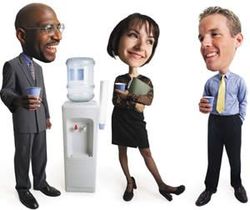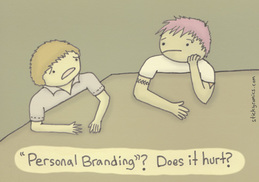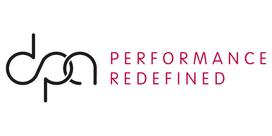The water cooler, elevator or canteen cue; It’s all the same. You find yourself stood next to your line manager, head of department or maybe even CEO. You make eye contact, you smile awkwardly at each other (inside you’re delighted that they have even recognised you).They open their mouth.
“So…what are you up to at the moment?”
Your monkey brain kicks in. Your mind rushes through every project you've undertaken, failures, successes, the aftermath of every Christmas party, all your great ideas that will triple year on year growth. As you consider this your face goes red, your breath gets short and your vision narrows. You've been trying to book a meeting with this person for six months. After what seems an eternity you answer.
“Oh you know keeping busy. This and that.”
The opportunity has passed.
What is the opportunity?
The same kind of question is asked at virtually every interview.It’s not the opportunity to reel through your CV. It’s not the opportunity to talk about your holiday either. It’s an opportunity to promote what you do, your value proposition.
To many people the very thought of the phrase ‘sell yourself’ or ‘personal branding’ makes them feel deeply comfortable. There is a fear that it makes them somehow inauthentic or arrogant. Americans and South Africans tend to be much stronger at self-promotion, Europeans (particularly us Brits) less so. Almost as if promoting ourselves somehow diminishes our value.
However selling and branding are an intrinsic and essential part of every commercial endeavour and your career progression, whether as a freelancer or within a company, is your business. When we interview or have these chance stakeholder contacts, as the CEO of your own career you are the only one that can authentically promote you and what you do.Think of it this way. Would Steve Jobs have talked about the Iphone in the way we talk about ourselves?
“Yeah…It’s a phone…and if you touch the screen it does a load of other stuff…you know this and that.”
So why do we do this to our own ‘product’ or ‘brand’?
Recently I have been working with a major European chain of fitness clubs, coaching some of their senior managers. During these coaching sessions the topic of future aspirations and career progression invariably come up. The common reason people cite in not being able to move forward as quickly as they feel they deserve is that they don’t know how to ‘sell’ themselves or their work when the opportunity presents itself. Some are guided by the noble but naive and outdated idea that if they work hard and are good at their job, that will speak for itself and ultimately bring with it the just rewards. Unfortunately in today's business this is simply not the case.
Conversely when I asked the same people to tell me why they enjoyed working for the company, they could talk articulately and with passion about the brand for which they work. Why then couldn't they talk about their own achievements in the same way?
So how do we do the same for our personal brand?
There are many components to this answer. Self-esteem, Emotional Intelligence, personal gravitas, verbal/ para-verbal skills and body language all play a part. But for now let’s talk about some simple tips for the “water cooler” moment.
“So…what are you up to at the moment?”
Your monkey brain kicks in. Your mind rushes through every project you've undertaken, failures, successes, the aftermath of every Christmas party, all your great ideas that will triple year on year growth. As you consider this your face goes red, your breath gets short and your vision narrows. You've been trying to book a meeting with this person for six months. After what seems an eternity you answer.
“Oh you know keeping busy. This and that.”
The opportunity has passed.
What is the opportunity?
The same kind of question is asked at virtually every interview.It’s not the opportunity to reel through your CV. It’s not the opportunity to talk about your holiday either. It’s an opportunity to promote what you do, your value proposition.
To many people the very thought of the phrase ‘sell yourself’ or ‘personal branding’ makes them feel deeply comfortable. There is a fear that it makes them somehow inauthentic or arrogant. Americans and South Africans tend to be much stronger at self-promotion, Europeans (particularly us Brits) less so. Almost as if promoting ourselves somehow diminishes our value.
However selling and branding are an intrinsic and essential part of every commercial endeavour and your career progression, whether as a freelancer or within a company, is your business. When we interview or have these chance stakeholder contacts, as the CEO of your own career you are the only one that can authentically promote you and what you do.Think of it this way. Would Steve Jobs have talked about the Iphone in the way we talk about ourselves?
“Yeah…It’s a phone…and if you touch the screen it does a load of other stuff…you know this and that.”
So why do we do this to our own ‘product’ or ‘brand’?
Recently I have been working with a major European chain of fitness clubs, coaching some of their senior managers. During these coaching sessions the topic of future aspirations and career progression invariably come up. The common reason people cite in not being able to move forward as quickly as they feel they deserve is that they don’t know how to ‘sell’ themselves or their work when the opportunity presents itself. Some are guided by the noble but naive and outdated idea that if they work hard and are good at their job, that will speak for itself and ultimately bring with it the just rewards. Unfortunately in today's business this is simply not the case.
Conversely when I asked the same people to tell me why they enjoyed working for the company, they could talk articulately and with passion about the brand for which they work. Why then couldn't they talk about their own achievements in the same way?
So how do we do the same for our personal brand?
There are many components to this answer. Self-esteem, Emotional Intelligence, personal gravitas, verbal/ para-verbal skills and body language all play a part. But for now let’s talk about some simple tips for the “water cooler” moment.

Why is it called the “water cooler” moment?
It's a common place for casual interactions and 'chance' meetings with those outside your normal circle. In Hollywood studios young staff writers would try and time there journey to the office water cooler to coincide with that of the studio execs or producers in the hope of sparking a casual conversation which would then give them the opportunity to sell their big idea. The key to success in these counters was to be relaxed but ready to do a mini-pitch as soon as the opportunity arose. The mini-pitch would be a two or three line summary of the idea that would excite interest and offer the chance for further questions. It’s a hook. Legend has it that Ridley Scott sold “Alien” to 20th Century Fox on the strength of the tagline “In space no one can hear you scream.” He had no story, no details. Just the idea.
So what do I do with my opportunity?
Here are a few simple pointers:
1. Change your mind-set from ‘selling yourself’ to ‘promoting what you do’.
2. What DO you do? Be prepared.
Think of two or three projects that you have or are currently working on. Projects which you are proud and passionate about. For each of these write down three or four bullet points e.g what went well? What you learned. Why you enjoyed it and what it did for the business. Use the model below as a guide. If nothing else this is a great exercise in thinking about your achievements.
It's a common place for casual interactions and 'chance' meetings with those outside your normal circle. In Hollywood studios young staff writers would try and time there journey to the office water cooler to coincide with that of the studio execs or producers in the hope of sparking a casual conversation which would then give them the opportunity to sell their big idea. The key to success in these counters was to be relaxed but ready to do a mini-pitch as soon as the opportunity arose. The mini-pitch would be a two or three line summary of the idea that would excite interest and offer the chance for further questions. It’s a hook. Legend has it that Ridley Scott sold “Alien” to 20th Century Fox on the strength of the tagline “In space no one can hear you scream.” He had no story, no details. Just the idea.
So what do I do with my opportunity?
Here are a few simple pointers:
1. Change your mind-set from ‘selling yourself’ to ‘promoting what you do’.
2. What DO you do? Be prepared.
Think of two or three projects that you have or are currently working on. Projects which you are proud and passionate about. For each of these write down three or four bullet points e.g what went well? What you learned. Why you enjoyed it and what it did for the business. Use the model below as a guide. If nothing else this is a great exercise in thinking about your achievements.
3. Be concise.
You only want to offer a couple of teaser points. This is just the hook. If they ask questions brilliant if not ask them if you could schedule some time to give them more details if they are interested.
4. Believe in your achievements.
If you don’t why should they?
5. Ask them the same question back.
Everyone likes to be paid attention to. There answer may also help you tailor your ‘mini-pitch’ to a current concern of theirs.
6. Take a deep breath.
Sound silly? But before you respond take a deep breath to calm the nerves and allow your frontal cortex to kick in.
You only want to offer a couple of teaser points. This is just the hook. If they ask questions brilliant if not ask them if you could schedule some time to give them more details if they are interested.
4. Believe in your achievements.
If you don’t why should they?
5. Ask them the same question back.
Everyone likes to be paid attention to. There answer may also help you tailor your ‘mini-pitch’ to a current concern of theirs.
6. Take a deep breath.
Sound silly? But before you respond take a deep breath to calm the nerves and allow your frontal cortex to kick in.

Practice with colleagues or lower level stakeholders to build confidence and fluidity in your pitch. After all it’s just speaking to another human being. And it’s got to be better than repeating the same conversations about house prices or the weather.
Anthony Topham is an actor and consultant who works for the award winning consultancy DPA. For more info click on the image below.
Anthony Topham is an actor and consultant who works for the award winning consultancy DPA. For more info click on the image below.



 RSS Feed
RSS Feed
